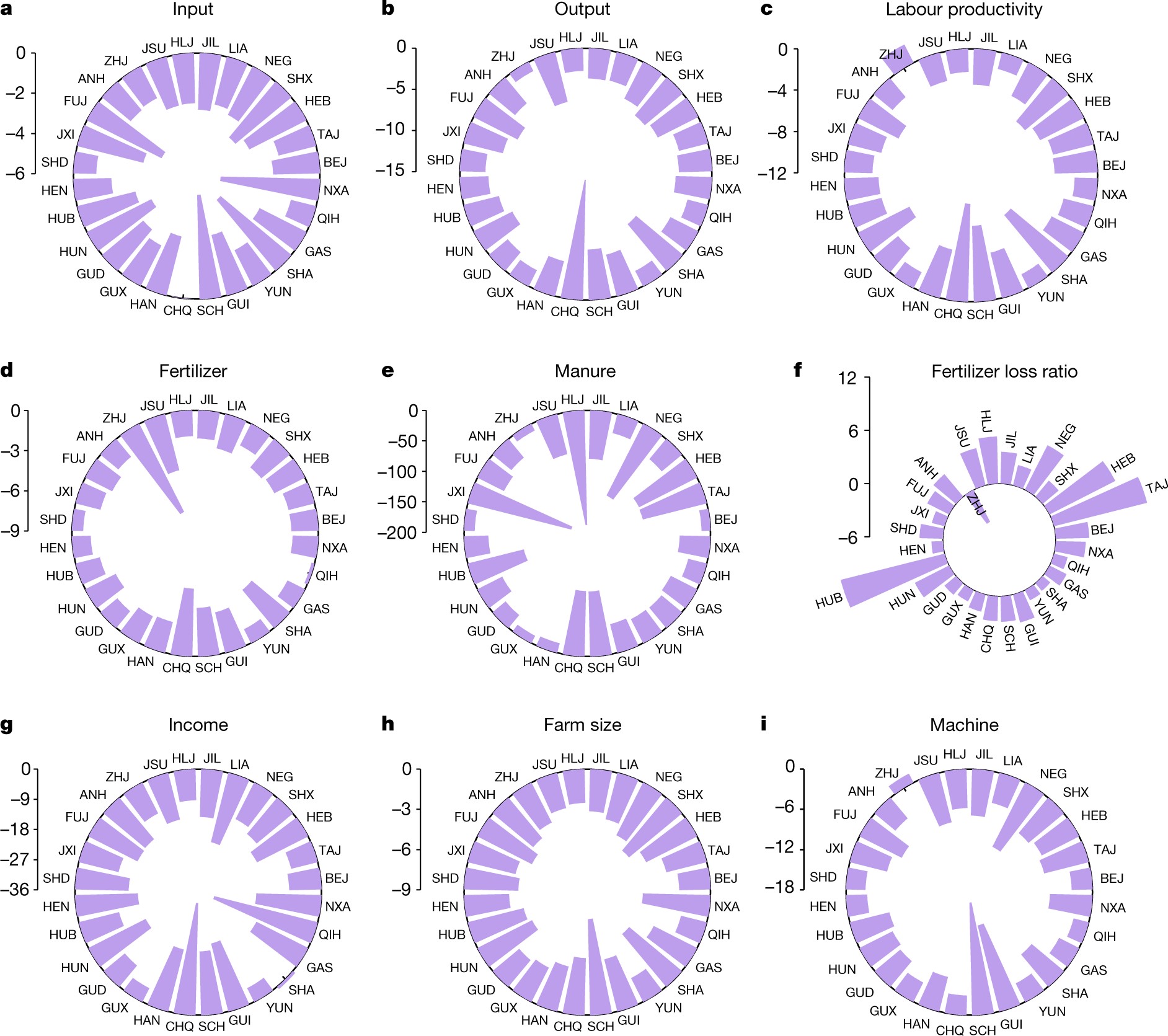文章来源:Chenchen Ren, Xinyue Zhou, Chen Wang, Yaolin Guo, Yu Diao, Sisi Shen, Stefan Reis, Wanyue Li, Jianming Xu, Baojing Gu. (2023). Ageing threatens sustainability of smallholder farming in China. Nature: 616, 96–103. https://doi.org/10.1038/s41586-023-05738-w.
整理人:徐嘉苗,2021级本科生
整理时间:2024年6月2日
Abstract: Rapid demographic ageing substantially affects socioeconomic development and presents considerable challenges for food security and agricultural sustainability, which have so far not been well understood. Here, by using data from more than 15,000 rural households with crops but no livestock across China, we show that rural population ageing reduced farm size by 4% through transferring cropland ownership and land abandonment (approximately 4 million hectares) in 2019, taking the population age structure in 1990 as a benchmark. These changes led to a reduction of agricultural inputs, including chemical fertilizers, manure and machinery, which decreased agricultural output and labour productivity by 5% and 4%, respectively, further lowering farmers’ income by 15%. Meanwhile, fertilizer loss increased by 3%, resulting in higher pollutant emissions to the environment. In new farming models, such as cooperative farming, farms tend to be larger and operated by younger farmers, who have a higher average education level, hence improving agricultural management. By encouraging the transition to new farming models, the negative consequences of ageing can be reversed. Agricultural input, farm size and farmer’s income would grow by approximately 14%, 20% and 26%, respectively, and fertilizer loss would reduce by 4% in 2100 compared with that in 2020. This suggests that management of rural ageing will contribute to a comprehensive transformation of smallholder farming to sustainable agriculture in China..
摘要:人口快速老龄化对社会经济发展产生了重大影响,并对粮食安全和农业可持续性提出了巨大挑战,而这些挑战至今尚未得到充分理解。本研究利用来自中国超过15,000户无畜牧业的农村家庭的数据,揭示了农村人口老龄化通过转让耕地所有权和土地撂荒(约400万公顷)在2019年导致农场规模缩减了4%,以1990年人口年龄结构为基准。这些变化导致包括化肥、粪肥和机械在内的农业投入减少,进而分别使农业产出和劳动生产率降低了5%和4%,进一步减少了农民收入约15%。同时,化肥流失增加了3%,导致向环境排放的污染物增多。在合作社经营等新型农业经营模式中,农场往往规模更大,且由受教育程度较高的年轻农民运营,从而改善了农业生产管理。通过鼓励向新型经营模式转变,可以逆转老龄化的负面影响。到2100年,与2020年相比,农业投入、农场规模和农民收入预计将分别增长约14%、20%和26%,化肥流失则会减少4%。这表明,有效管理农村老龄化问题将有助于中国小农农业全面转型为可持续农业。

图 2019年中国各省农村老龄化对农业可持续发展的影响

图 2019年传统小农和新型经营主体的对比

图 未来SSP情景下中国农业可持续发展的变化
注:其中NF代表新型经营主体
原文链接:https://www.nature.com/articles/s41586-023-05738-w
节选转引:https://mp.weixin.qq.com/s/vCjOMXEqsCc-Os8SY1E4xA